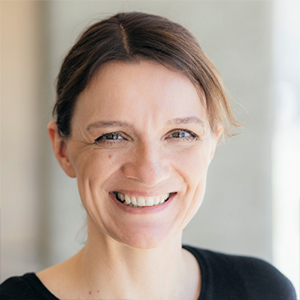
Maria Müller-Gartner
Biography
Clinical psychologist
ISST certified trainer/supervisor
Head of the Institute for Schema Therapy Graz/Austria- Diploma in psychology and doctorate from Karl Franzens University Graz, specialist training as a clinical psychologist, practical training at the Graz University Hospital, graduation and registration as clinical psychologist in 1999
- Conceptualization and development of clinical-psychological services at a regional hospital from 2000, at the same time starting self-employed work (since 2001)
- Teaching from 2006 onwards, a.o. for Joanneum University of Applied Sciences, University of Graz and MedUni Graz
- Training a.o. in biofeedback, neurofeedback, EMDR
- Specialization in schema therapy
- Since 2012 only working in private practice
- ISST-Trainer and Supervisor, head of the Institute for Schema Therapy Graz (IST-G) since 2017
- Offering workshops on reparenting and self-parenting in Austria and Germany
From Reparenting to Self-Parenting: Concept, Skills and Pitfalls
Jeffrey Young repeatedly pointed out the importance of helping the patient become a good parent to themselves. The reparenting relationship aims to develop this healthy self-relationship, which provides safety to the Vulnerable Child by meeting its emotional needs and thus enables the patient to reconnect with their adult side.
In the workshop we will take a closer look at the modes involved, their attributes, development tasks, and how they relate to one another. A self-parenting depiction will be used in order to illustrate mode interactions, challenges and intervention possibilities. Furthermore, applying a particular parent-child narrative will be suggested as a framework.
Adequate self-parenting as a goal of therapy will be specified and expanded on by proposing three central areas of responsibility regarding the self-parenting work of the Healthy Adult, which I abbreviate as NEED: (1) Nurturance and Enjoyment: e.g. being a caring and value-oriented parent for the Vulnerable Child in everyday life and evolving a positive, grateful and appreciative “inner family climate”, (2) Emergency care: attention and understanding in the case of schema activation, addressing the Vulnerable Child’s emotions and coping impulses, and (3) Decision making from a good parent’s perspective, keeping in mind adult reasons, but also the needs and “wounds” of the Vulnerable Child, their healing capacity and their actual limits. In addition, we will reflect on ways to strengthen the Vulnerable Child’s confidence in being seen, valued and cared for by the grown up. Frequent challenges will be discussed.
In regards to our reparenting work as a means to achieve this goal, we will take important individual differences in account, that may lie beyond schemas, but still affect attachment. Even “little” things like a therapist’s warm, soft tone of voice can be soothing for one patient and triggering for another. However, especially the “big” things, such as the limit setting style, can have vastly different effects on clients. Not considering those differences can lead to subtle misunderstandings and even subconscious countertransference. Two cases will be presented and compared, according to the above-mentioned depiction. They will outline frequent differences we should be aware of and take to a conscious level. Moreover, we will reflect on their caregiver’s coping modes and consider the presumed influence on the patient’s early attachment experiences and current attachment problems. We will then derive individual reparenting and self-parenting suggestions from that.
Participants are invited to reflect on some of their own childhood experiences, relationship patterns and their Vulnerable Child, if they want to. It would be great if you bring a personal picture with you where you are 3 to 6 years old, ideally looking at the camera, the format being big enough to clearly see the child’s eyes.

